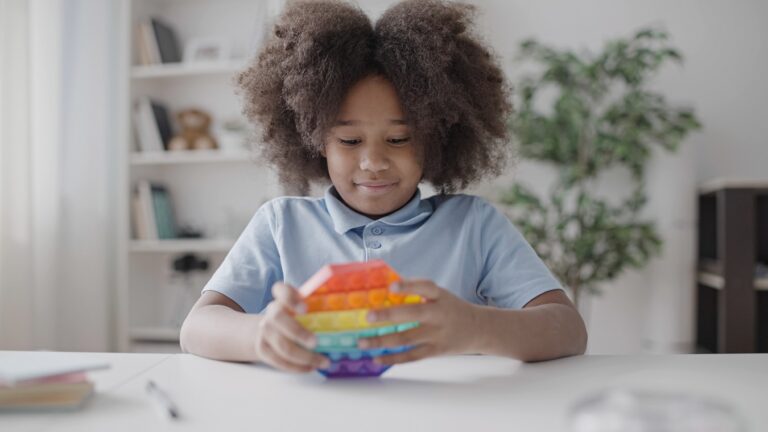In a recent Black History Month mini-series on the Project Parenthood podcast, host Dr. Nanika Coor talks to Black mental health experts and discusses how to raise kids with a healthy racial identity and an interest in racial justice. Read on to see some highlights from each episode and listen to the audio with the included players.
You’ll see 2023’s Black History Month theme “Black Resistance” prevail in each episode, illustrating the ways Black people have always been the driving force behind their own liberation. Expert guests help illuminate the challenges faced by Black and multi-racial families and explain how parents can educate themselves and empower their kids.
Tips for White parents raising Black children with Abby Hasberry
In this episode, Dr. Coor and Dr. Hasberry discuss:
- How transracial adoptees can develop a healthy racial identity
- Providing a safe space for transracial kids when they run into microaggressions, as well as overt and covert acts of racism
- What is masking? What it may look like for a transracial adoptee
- Preparing Black children for racism and white supremacy
- The impact on your Black child’s development as a transracial adoptee
- How to validate your child’s lived experience
- The biggest myth about why transracial adoption is needed
“We have all been raised in American society where a lot of unpleasantness happens, and that’s not a thing that anyone can dodge and avoid. It just is part of growing up in our society. And so accepting that you may at some point do something that is inappropriate or harmful to your child, and then moving forward from that is, is the first step. And even in parenting in general, whether it be just as a parent of your own biological same race kiddo, we do things that can be harmful to our kids.” –Abby Hasberry
Raising multi-racial kids with Dr. Jennifer Noble
Listen to hear Dr. Coor and Dr. Noble talk about:
- Helping multiracial kids develop a healthy racial identity
- The one-drop rule
- Colorism and passing
- What does monoracial mean?
- How to have honest discussions about being multiracial
- The pressures related to being multiracial
- Challenges multiracial kids may face
- Helping a child with two histories reconcile them without having a demoralizing sense of racial identity
- Myths about multiracial identity
“I think it’s also fair to say colorism is worldwide. We see that impact of white supremacy and trying to maintain that this is the best and we should have the most power. Every single country has it.” –Dr. Jennifer Noble
The Talk: preparing Black kids for a racist world with Dr. Riana Elyse Anderson
Listen as Dr. Coor and Dr. Riana Elyse Anderson go deep on:
- What is “the talk”?
- What strategies can families use when having it?
- How can Black parents help prepare kids for managing racism and microaggressions, racial bias, and white supremacy in their very young lives?
- How a Black family can help their child with feelings of internalized racism in a predominantly White environment
- How to impress upon Black kids the importance of Black resistance
- Myths about talking to Black kids about race
“Having conversations that are honest and open with your child early can help to absolve them of those depressive or anxious symptoms that come up when they experience discrimination. Not if, when they experience discrimination, when they start to notice racism, they will have questions.” –Dr. Riana Elyse Anderson
Finding neurodiversity-affirming therapy for Black neurodivergent kids with Dr. Loucresie Rupert
So many parents wonder about neurodivergence, for example, how to parent a child with ADHD? In this discussion, you will hear about:
- What’s meant by terms like ableism and neurodiversity affirming?
- The stigma in the intersection of Black lived experience and neurodivergence
- What are masking, unmasking, and code- switching, and are they different for a Black neurodivergent person than a non-Black neurodivergent person?
- What is ABA therapy? Is it a good or bad thing for autistic children?
- What should parents look for when seeking out a new clinician?
- Myths about Black neurodiversity
“So masking in the neurodiverse world refers to basically acting like a neurotypical person. The biggest one is eye contact. In the neurotypical world, eye contact is a sign of respect. It’s a sign of paying attention. For a lot of neurodiverse people eye contact can be physically uncomfortable.” –Dr. Loucresie Rupert
Read the full transcripts and listen to more Project Parenthood here.
Disclaimer
All content here is for informational purposes only. This content does not replace the professional judgment of your own mental health provider. Please consult a licensed mental health professional for all individual questions and issues.




